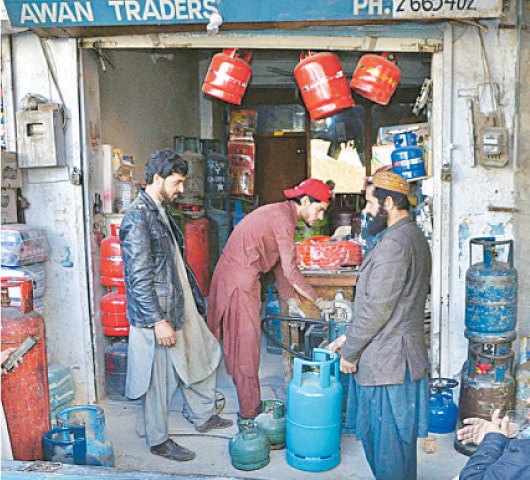Textile exports rise 6pc in October, LPG imports up


ISLAMABAD: Pakistan’s textile and clothing exports posted a paltry growth of 3.78 per cent year-on-year to $4.76 billion in July to October FY21 compared to $4.58bn, data released by the Pakistan Bureau of Statistics (PBS) showed on Wednesday.
In October, export proceeds were up by 6.18pc from a year ago. In September, they grew by 11.03pc while a decline of 15pc was recorded in August. However, in the first month of the current fiscal year, exports recorded a robust increase of 14.4pc on a year-on-year basis. The demand for country’s exports has collapsed since March due to the Covid-19 pandemic, while a gradual improvement was seen since June from international buyers.
The government has also announced a series of incentives to support exporters to meet the challenges in the wake of the pandemic and disruption in supplies.
The PBS data showed that ready-made garment exports edged up by 4.66pc in value while plunging in quantity by 45.43pc during July to October this year from a year ago. Exports of knitwear increased by 12.30pc in value and 18.58pc in quantity; bedwear exports were up 9.95pc while dipped 9.8pc in quantity, respectively. Towel exports went up 12.35pc in value and 9.49pc in quantity, whereas those of cotton cloth dipped 7.94pc and 23.55pc in quantity.
Among primary commodities, cotton yarn exports plunged by 54.56pc, yarn other than cotton by 19.20pc, made-up articles — excluding towels — was up 15.35pc and tents, canvas and tarpaulin increased by a massive 67.07pc during the months under review.
The import of textile machinery dropped by 38.12pc during the first four months of current fiscal year — a sign that no expansion or modernisation projects were taken up by the industry in the given period.
Petroleum imports declined 24.56pc in the first four months (July-October) to $3.15bn, compared to $4.18bn over the last year, the PBS data showed.
Of these, petroleum product imports were down 12.50pc in value in the first four months’ despite increasing by 67.05pc in quantity. Similarly, import of crude oil dipped 26.13pc in value, but posted a growth of 15.84pc in quantity during the period under review while those of liquefied natural gas fell by 46.14pc in value. On the other hand, liquefied petroleum gas (LPG) imports jumped 54.09pc in value in July-October, largely to plug a shortage in local production.
Machinery imports went down 6.29pc to $2.63bn in the first four months from $2.80bn. The decline in imports was recorded for almost all kinds of machinery except mobile phones.
In the telecommunication sector, imports surged by 28.91pc on the back of mobile handsets arrivals which were up by 43.6pc. This was the result of a crackdown on smuggling and doing away with free imports in baggage schemes. Import of other apparatus fell by 9.73pc. The overall transport group also witnessed a contraction of 4.83pc. An increase of 56.80pc was seen in imports of textile group — raw cotton, synthetic and artificial silk yarn.
Overall food group import jumped by 43.49pc to $2.27bn during the first four months this year against $1.58bn from a year ago. The government is importing wheat and sugar to bridge local shortages. The import of almost all essential food products — milk, wheat, dry fruits, tea, spices, palm oil, soybean oil, pulses, sugar etc — witnessed growth during the months under review.
Published in Dawn, November 19th, 2020